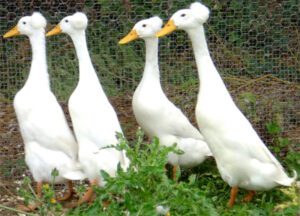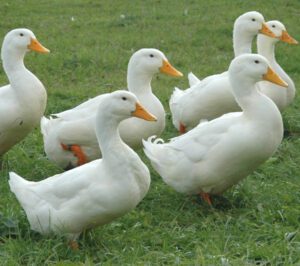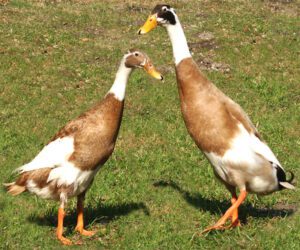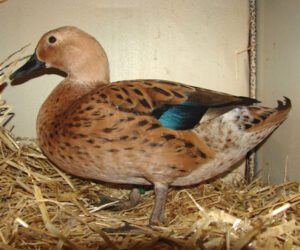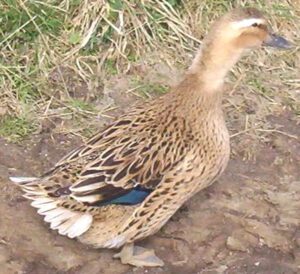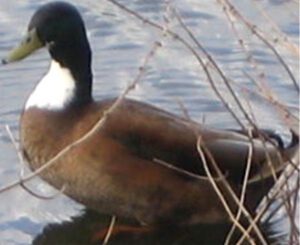The Golden Cascade duck is a dual purpose breed of domestic duck originating in the United States. The breed was developed by David Holderread of Corvallis, Oregon in 1979. David Holderread wanted to create such a breed that was active, good egg layer and fast growing.
The Golden Cascade duck was first introduced to the market by the mid 1980s, probably in the year of 1984 as a dual purpose breed.
The breed was named for it’s golden hue and for the prominent Cascade Range of the Northwest. It is raised mainly for it’s eggs production and also as a backyard bird.
But the breed is not yet admitted into the American Poultry Association’s Standard of Perfection. Review more information about the Golden Cascade duck below.
Golden Cascade Duck Characteristics
The Golden Cascade duck is a medium weight domestic breed of duck. They are known for the red tinge prominent on their head. The drakes have Satin green or Bronze heads and yellow beaks. Their breasts are reddish and have white underbodies.
The throat of the drakes can turn light fawn and they have white ring on their necks. On the other hand, the Golden Cascade duck (female) has Buff or Fawn plumage and orange beaks with brown markings.
Older Golden Cascade drakes can molt to a fawn or buff that covers the head and body. But the younger, or first year birds have a chestnut chest with the classic Golden buff to white shoulders, sides and belly.
Gender of the Golden Cascade ducklings are easily determined by their down color. The ducklings with darker brown color are males and lighter brown colored ducklings are females. Average body weight of this duck is about 2.7 to 3.6 kg. Photo from Wikipedia.

Uses
Golden Cascade ducks were developed mainly as a dual purpose breed. And they are suitable for both meat and eggs production. Today they are raised as laying birds and also popular as backyard birds.
Special Notes
Golden Cascade duck is an active and a fast growing duck breed. It is a good egg layer and also a good meat duck breed. Usually the ducks lay well from January through August. Then take a few weeks off and start again till the end of the season.
Spring ducklings will often begin laying eggs in the fall. They are good as backyard birds and also make good pets. Review full breed profile of this duck breed in the following chart.
| Breed Name | Golden Cascade |
| Other Name | None |
| Breed Purpose | Dual Purpose |
| Special Notes | Active, Docile, Fast Growers |
| Breed Class | Medium |
| Broodiness | Good |
| Drake | About 3.6 kg |
| Duck | About 2.7 kg |
| Climate Tolerance | All Climates |
| Egg Color | White |
| Egg Size | Large |
| Egg Weight | Up to 75 grams |
| Egg Productivity | Medium |
| Flying Ability | Poor |
| Rarity | Common |
| Varieties | Golden |
| Country of Origin | United States |

